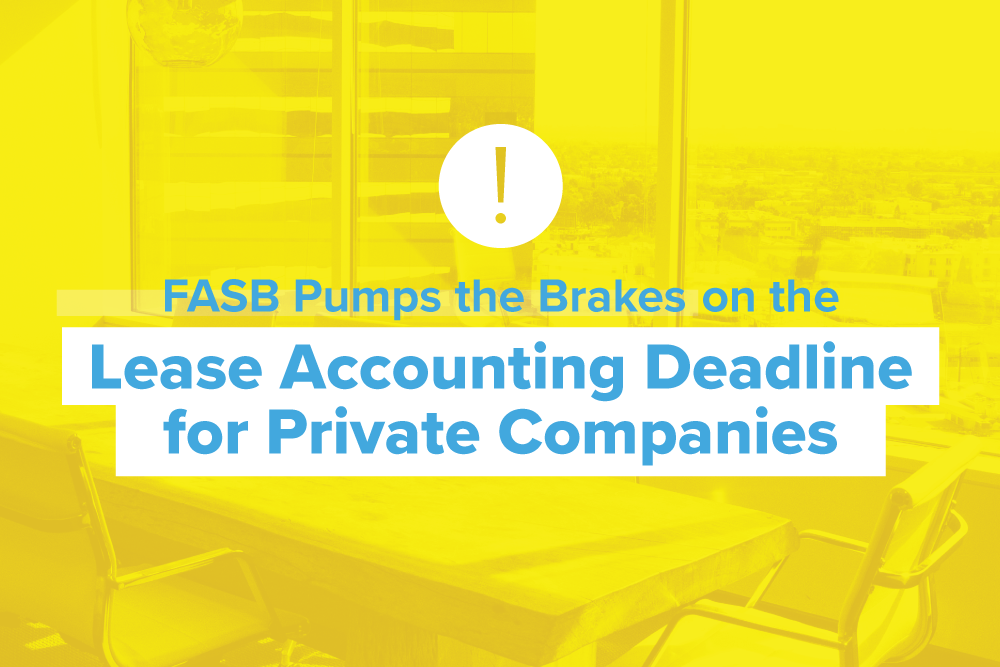As dedicated purveyors of accounting and finance wisdom, Embark only feels it's our obligation to keep you plugged in and on top of your financial game. And for anyone that rolls their eyes when we muse about the dynamic world of accounting, we turn your attention to the recent comings and goings of ASC 842. Yes, guidance is dynamic, albeit more of a kiddie coaster than a full-blown thrill ride.

Recently, the FASB unanimously voted to delay the effective date for ASC 842 and some of its other new(ish) guidance – now beginning after December 15, 2020 (2021 calendar year rather than 2020) – for private companies, small reporting companies, and nonprofits.
Now, just so we're on the same page and you don't think Embark is giving clickbait a whirl, this is all good news for private entities. The lease accounting sky isn't falling and you just got a bit of breathing room from the fine folks at the FASB, as we're about to explain.
Why the Change?
Using our own copious thoughts on rev rec and lease accounting as evidence, the recent changes to a handful of key standards weren't exactly mild or subtle, making some companies feel like they're walking on financial eggshells. Public companies are already firmly entrenched in ASC 842 – having taken effect in January 2019 – and they're really the catalyst for the delayed effective date. The simultaneous changes to rev rec and lease accounting have muddied the waters enough to cause the FASB to give private companies a bit of a breather.
In fact, the AICPA was the primary driver to the delay, formally asking the FASB to push things back a bit due to the complexities and difficulties already experienced on the public side of the fence. As we discussed not so long ago, many companies have been slow to board the new guidance adoption train, creating a slight but palpable sense of panic in accounting conference rooms from sea to shining sea.
So...What Does This Mean?
Well, if you're a public company, it doesn't mean a heckuva lot. And by heckuva lot, we mean it doesn't matter at all. However, if you're private, nonprofit, or a small reporting company, it gives you another full year to educate your team on the lease accounting changes. This doesn't mean you should take your foot off the accounting gas, though, because as you already know, time has a way of slipping through our fingers.
In other words, like it or not, those lease liabilities are still going to wake up one day sitting on your balance sheet. Although kicking the 842 tin can down the road an extra year is obviously significant, it's still just delaying the inevitable. Take a close look at your systems and processes, using the additional time to sufficiently prepare for the changes. Since it's unlikely the FASB will find more altruism sitting in its front pocket, take full advantage of this opportunity to ensure your transition is as seamless and efficient as possible.
Of course, having an extra year doesn't make the new lease accounting standards any less complex or even confounding to some. If you find yourself, despite your best efforts, still falling behind or flailing in the choppy guidance waters, Embark is always here to throw you a life jacket. Better yet, our team can help make sure that your accounting boat never capsizes again.








